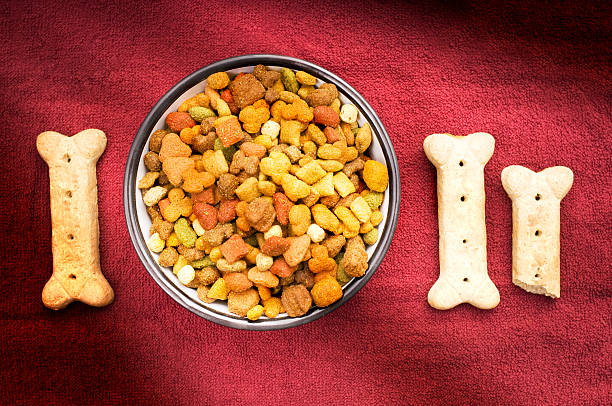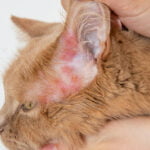Table of Contents
Providing healthy snacks for pets is essential for their overall well-being and happiness. Treats are an important part of training, rewarding good behavior, and showing affection. However, not all snacks are created equal. In this article, we explore the top 10 healthy snacks for pets that are both tasty and nutritious, ensuring your furry friends stay happy and healthy.

Fresh Fruits and Vegetables as Healthy Snacks for Pets
Many fresh fruits and vegetables make excellent healthy snacks for pets. Apples, carrots, blueberries, and green beans are just a few examples of nutrient-rich snacks that are low in calories and high in vitamins. Always wash fruits and vegetables thoroughly and remove any seeds or pits. For a comprehensive list of safe fruits and veggies, visit ASPCA.
Lean Meats: Protein-Packed Healthy Snacks for Pets
Lean meats like chicken, turkey, and beef are excellent sources of protein for pets. Ensure the meat is cooked thoroughly and free from bones and seasoning. These proteins can help maintain muscle mass and provide energy. For more information on feeding lean meats to pets, see PetMD.
Fish as Nutritious Healthy Snacks for Pets
Fish such as salmon and tuna are rich in omega-3 fatty acids, which are beneficial for your pet’s skin, coat, and overall health. Serve cooked fish without bones and seasoning. Fish can be a special treat, adding variety and essential nutrients to your pet’s diet. For details on feeding fish to pets, visit Cesar’s Way.
Peanut Butter: A Favorite Healthy Snack for Pets
Peanut butter is a favorite treat for many pets and can be a good source of protein and healthy fats. Ensure it does not contain xylitol, a sweetener that is toxic to pets. Use peanut butter as a snack or to hide medication. For more information on peanut butter for pets, check AKC.
Yogurt: Probiotic-Rich Healthy Snack for Pets
Plain, unsweetened yogurt is a healthy snack that provides probiotics, which are beneficial for your pet’s digestive system. Serve in small amounts as an occasional treat. Avoid flavored yogurts that contain added sugars or artificial sweeteners. Learn more about the benefits of yogurt for pets at Vetstreet.
Eggs: Protein-Packed Healthy Snack for Pets
Eggs are a great source of protein and essential amino acids. Serve cooked eggs (boiled or scrambled without oil or seasoning) to your pets. Eggs can help support muscle development and provide a nutritious snack. For guidelines on feeding eggs to pets, visit AKC.
Pumpkin: Fiber-Rich Healthy Snack for Pets
Pumpkin is rich in fiber and vitamins, making it an excellent addition to your pet’s diet. Canned pure pumpkin (not pie filling) can help with digestive issues and is a tasty treat. Mix a small amount into their regular food or serve alone. For more on the benefits of pumpkin, see PetMD.
Cheese: Calcium-Rich Healthy Snack for Pets
Cheese can be a tasty treat for pets in small quantities. Opt for low-fat varieties like mozzarella or cottage cheese. Cheese provides calcium and protein but should be given in moderation due to its high fat content. For more information, check Purina.
Commercial Healthy Snacks for Pets
There are many commercially available healthy snacks for pets made with natural ingredients. Look for treats with limited ingredients, no artificial additives, and those that are low in calories. Brands like Blue Buffalo, Wellness, and Natural Balance offer high-quality options. For a selection of healthy pet treats, visit Chewy.
Homemade Healthy Snacks for Pets
Making homemade treats allows you to control the ingredients and ensure they are healthy. Use simple recipes with natural ingredients like oats, peanut butter, and pumpkin. Homemade treats can be tailored to your pet’s dietary needs and preferences. For recipes, visit AKC.
Conclusion
Providing healthy snacks for pets is essential for their overall well-being and happiness. By choosing nutritious treats like fresh fruits and vegetables, lean meats, fish, and homemade goodies, you can ensure your pet enjoys a balanced diet. Always consult your veterinarian before introducing new snacks to your pet’s diet to ensure they are appropriate for their specific health needs. For more tips on pet nutrition, check out our Pet Nutrition Guide.
FAQs
Can all pets eat the same healthy snacks?
Not all pets can eat the same snacks. Always check with your veterinarian before introducing new foods to ensure they are safe and suitable for your pet’s specific dietary needs.
How often can I give my pet healthy snacks?
Treats should make up no more than 10% of your pet’s daily caloric intake. Offer snacks in moderation to avoid overfeeding and ensure a balanced diet.
Are there any fruits and vegetables that pets should avoid?
Yes, some fruits and vegetables are toxic to pets, such as grapes, raisins, onions, and garlic. Always research and consult your vet before giving new foods to your pet.
Can I use healthy snacks for training purposes?
Yes, healthy snacks can be used for training and rewarding good behavior. Choose small, low-calorie treats to avoid overfeeding during training sessions.
Is it safe to give my pet raw meat as a snack?
Feeding raw meat to pets can pose health risks due to bacteria like Salmonella and E. coli. It’s safer to provide cooked, lean meats without seasoning or bones.
What should I do if my pet has a negative reaction to a new snack?
If your pet shows signs of an allergic reaction or digestive upset, stop feeding the snack immediately and consult your veterinarian for advice.










